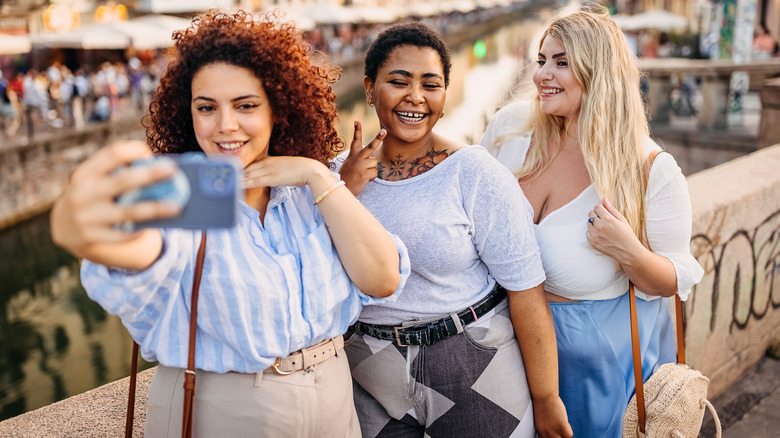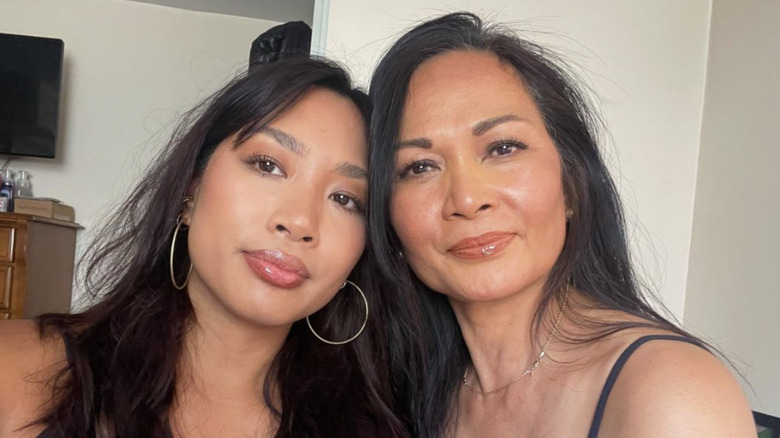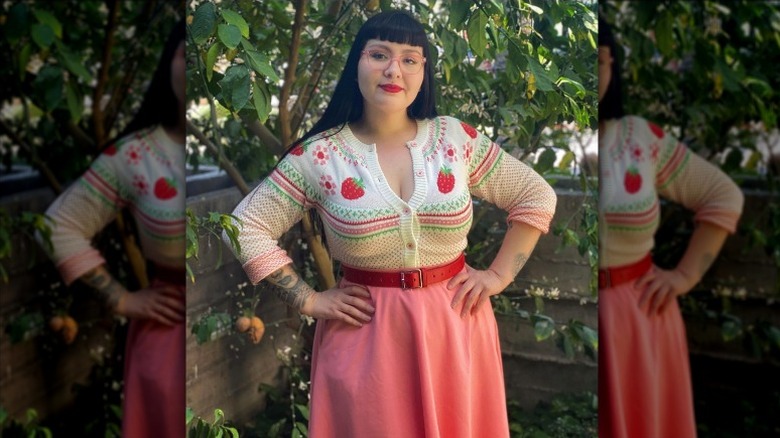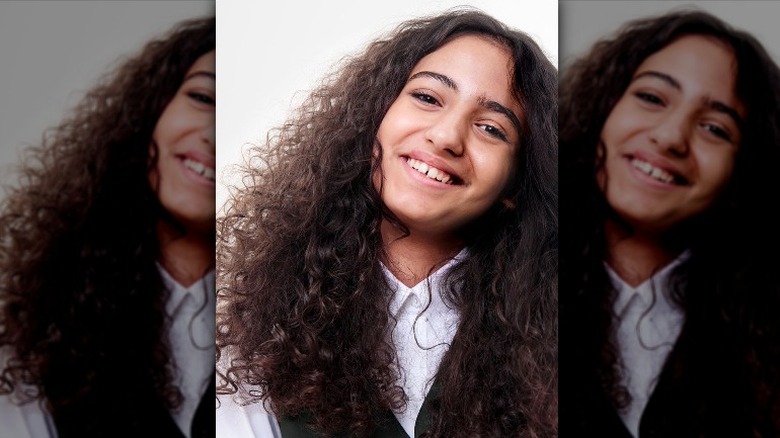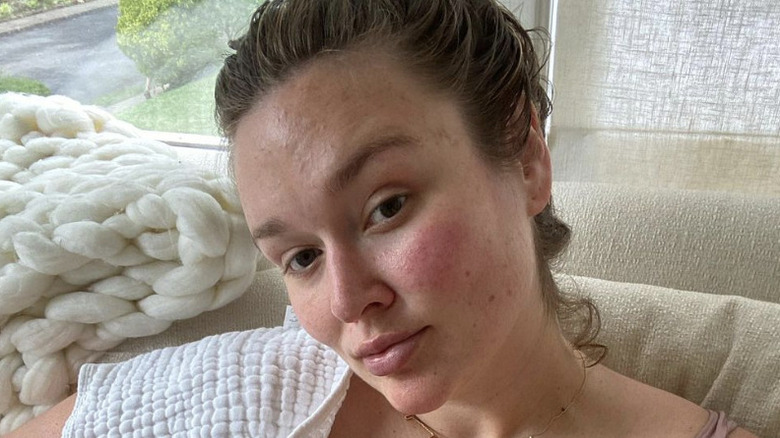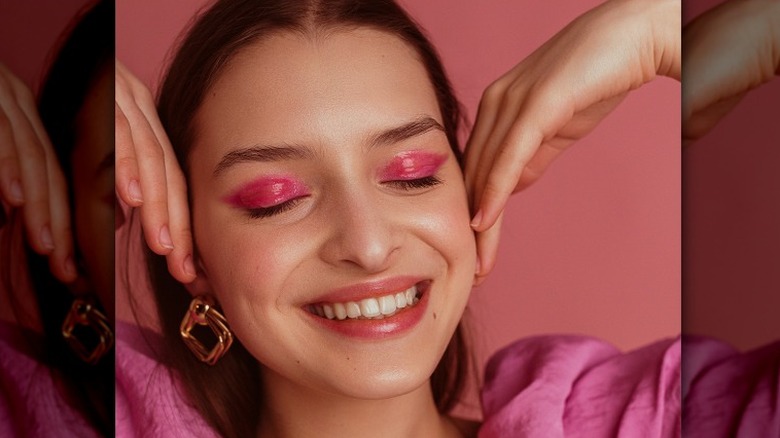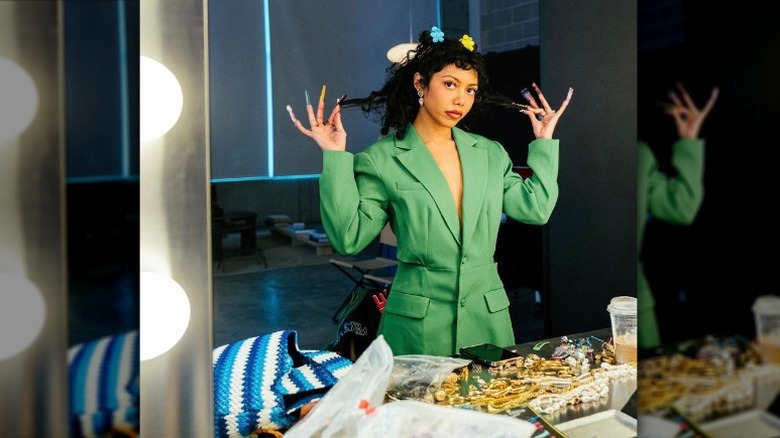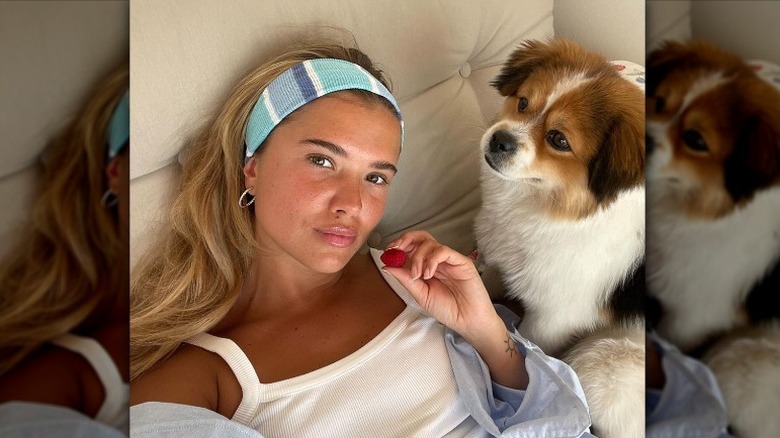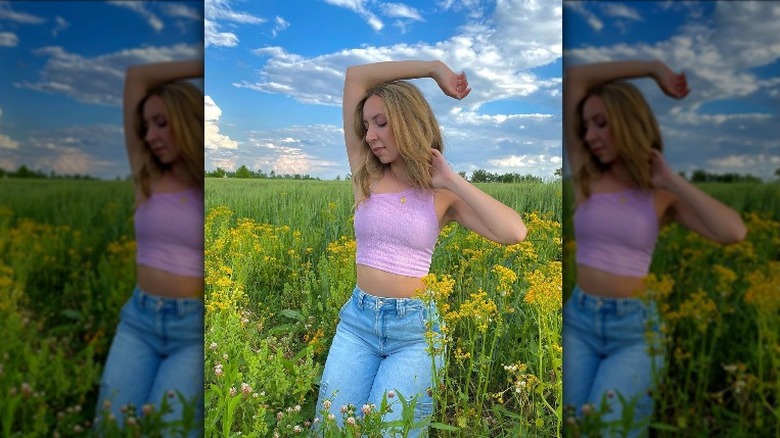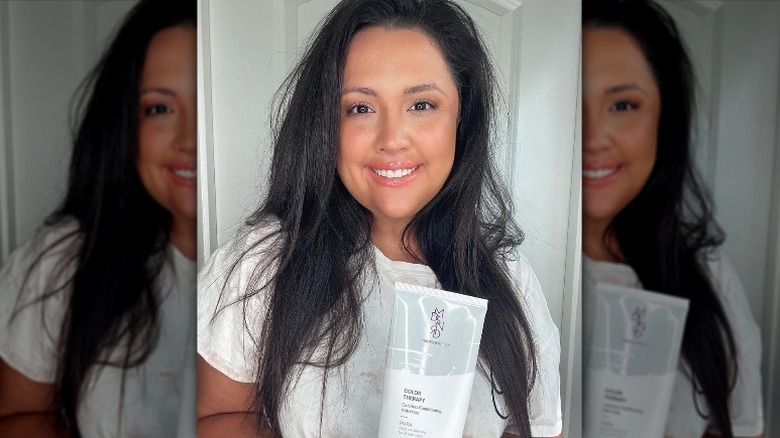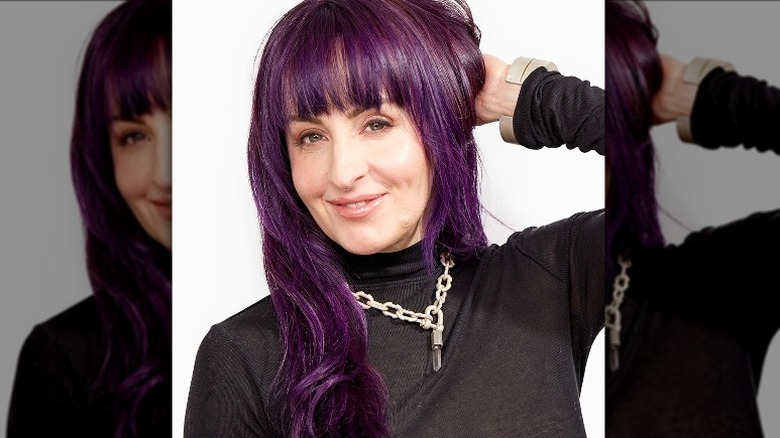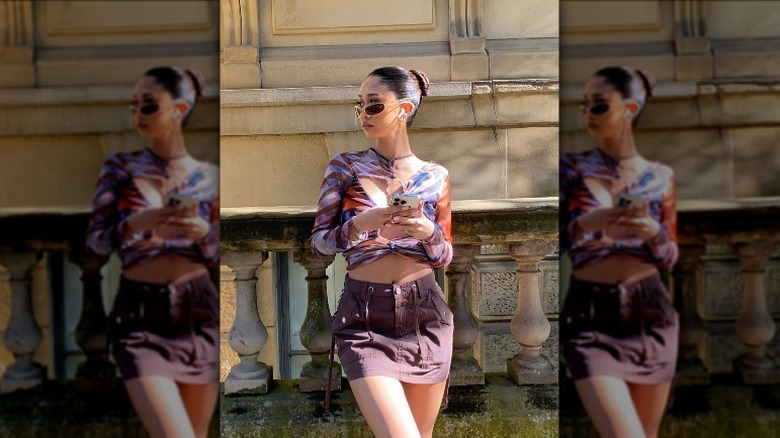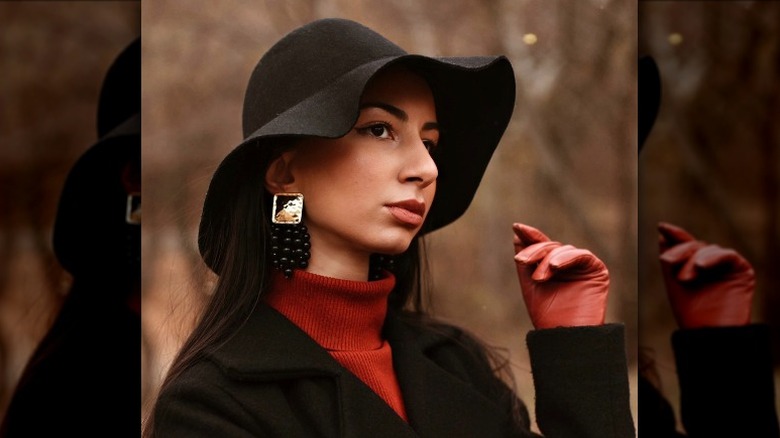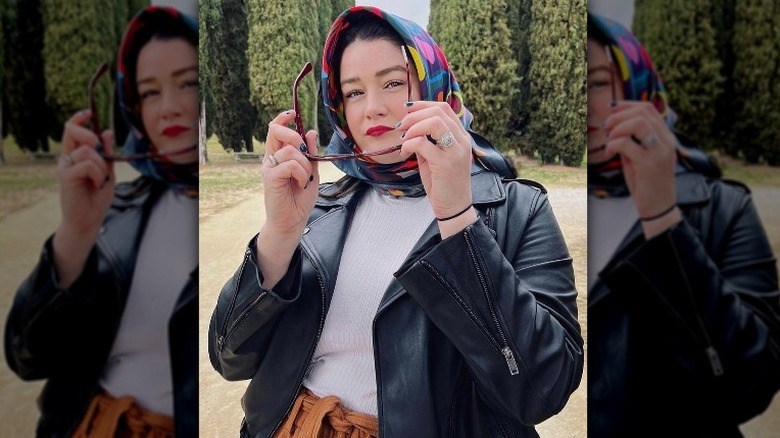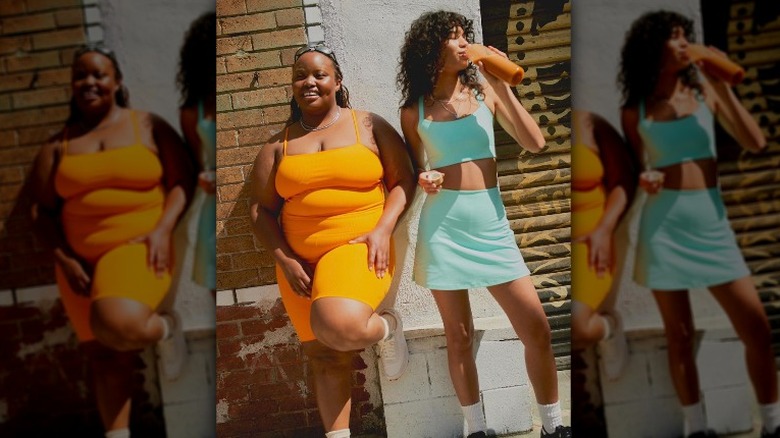14 Brands That Hit Back At Retouching And Embrace Inclusivity When Hiring Models
Photoshopping pictures and only hiring models with a specific body type are two deeply outdated modes of advertisement. Brands are quickly catching onto the fact that customers want to see people who actually look like them before buying various products. These rules especially apply when beach lovers are shopping for swimsuits to wear on their next vacation. Spotting models with a few rolls on their bellies and visible stretch marks on their hips is far more affirming and realistic than only seeing models with airbrushed skin and 0% body fat. 68% of American women wear a size 14 or higher, according to Plunkett Research.
These rules also come into play when beauty gurus are shopping for makeup to add to their cosmetic collections. When all you see are models with perfectly airbrushed skin, how can you truly measure the quality of the product being sold? If a model's pores have been completely blurred out, she looks more computer generated than real! A handful of progressive brands have realized that it's smarter to cater to real-world clientele with advertisements that aren't so aggressively filled with Photoshop and underweight models.
Fenty
Rihanna's impressive career has led her down the path of becoming a bona fide billionaire. Her music was a starting point, but after expanding into lingerie and cosmetics, she's doing even better for herself than anyone might've guessed during the earliest days of her superstardom. In 2019, she received loads of praise for leaving facial scars on one of her Fenty models instead of airbrushing them out. The side of the model's face has several visible divets that don't take away from her poise or beauty in the slightest.
To airbrush the photo would have meant taking away from the model's true appearance. Fenty customers were quick to hop on social media to share their excitement about the unretouched image. One person tweeted, "Wow! As a girl with scars, this really touches my heart. I've never had any reason to feel less terrible about my scars until seeing this." Since Rihanna is comfortable making the decision to opt out of Photoshop usage, her businesses will likely continue thriving as time progresses.
ModCloth
An anti-Photoshopping pledge is exactly what it sounds like, and ModCloth is the first retailer to officially sign such a forward-thinking promise. In 2014, they signed the "Heroes Pledge for Advertisers," which is a hard-hitting promise not to heavily alter the models photographed in their advertisements before release. More specifically, ModCloth pledged not to "change the shape, size, proportion, color and/or remove/enhance the physical features."
What you see is what you get when scrolling through ModCloth's official website. The waist of a model won't be slimmed down, her jawline won't be edited, and her legs won't be adjusted. Now, shoppers can analyze what each piece of clothing looks like on realistic bodies before making their purchases. After pinpointing a model online that has the same body type you have in real life, making purchases won't feel so risky.
Dove
When thinking of a brand like Dove, luxurious body wash and lotion probably come to mind. Dove has been around since 1957, starting out as a revolutionary beauty cleansing soap bar. The brand has come a long way since then, including how it approaches Photoshopping its advertisements. Just about 10 years ago, Dove launched the "Campaign for Real Beauty." According to The Guardian, the campaign is a vow to get rid of "all digital alterations to body shape, size, proportion, and skin color" from ads.
Along with this serious transition, Dove also decided to stop using the word "normal" on all packaging. The word "normal" isn't inclusive, since it suggests there's a standard to be met based on size, skin, body type, race, and demographic group. The only normal thing is individuality. When Dove first launched the campaign, they made sure to hire models with different body shapes and sizes to represent their brand. The lineup of models in matching underwear and bra sets in front of a plain white backdrop highlighted the contrasting beauty of the different women chosen.
Olay
Is there a name bigger than Olay in the beauty and skincare market? The longstanding brand has been making its mark in the beauty industry since 1952, and in 2020, the popular brand pledged to stop using Photoshop in all advertisements. With so many brands dealing with the repercussions of Photoshop failure backlash, Olay decided to get ahead of things and leave Photoshop practices in the dust. Photoshop fails aren't going anywhere anytime soon for brands who continue to alter images of their models.
Since Olay has moved on from Photoshop, they no longer have to concern themselves with such negative press. Procter & Gamble made the announcement about Olay letting go of Photoshopping practices on Twitter, and the brand has been keeping its word since then. When actress Busy Philipps modeled for their Microsculpting Regenerative Cream campaign, they didn't retouch any of her images. Having Philipps on board to promote their new initiative was a smart move, since she's a feminist who cares about women's/femme's empowerment and the body neutrality movement.
CVS
Since CVS is known for selling products that go far beyond the fashion and beauty industry, their decision to make such a change with their advertisements came as a slight surprise in 2018. Still, moving beyond digitally altered images was a welcome change. Whenever you see an advertisement with a "CVS Beauty Mark" logo on the corner of the image, it means the advertisement hasn't been Photoshopped or digitally altered in any way.
For makeup lovers who don't want to break the bank shopping for cosmetics at Sephora or Ulta, the CVS makeup aisle has always been somewhat of a safe haven. The items tend to be incredibly affordable whether you're looking for lipstick, mascara, or faux lashes. Now, instead of having to guess about how accurate beauty product ads from CVS actually are, the images show you exactly what you're getting. Lip lines aren't smoothed out, pores aren't blurred away, and teeth are no longer overly whitened.
Target
Many people consider Target to be a one-stop shop for all essentials and basic needs. The isles are clean and organized, the staff is available to answer your questions, and there are even machines scattered around where you can scan items for pricing before reaching the register to check out. When Target decided to launch a swimsuit campaign without any Photoshopping in 2017, it was met with remarkably positive feedback. Target left the stretch marks and cellulite on models completely visible.
Prior to 2017, it's highly unlikely you'd see a Target model in a swimsuit with stretch marks on her stomach or cellulite dimples on her thighs. Post-2017, these images aren't all that shocking to see anymore. Target decided it was time to make a commitment to the empowerment of all people, regardless of body size. Shoppers deserve to feel confident in whatever they wear, especially swimsuits. When models laid out before you in ads have the same body type, scars, or disability as you, it makes you feel more comfortable purchasing the same exact style of swimsuit.
Seventeen Magazine
Since Seventeen Magazine has always been geared toward teenage readers, the use of Photoshop should've never been on the table in the first place. Unfortunately, it was still part of the deal for the brand until a precocious eighth grader launched a campaign requesting serious changes to be made. In 2012, Julia Bluhm went out of her way to stand up against Seventeen Magazine and all of their airbrushed images. From her perspective, it's more important to focus on everyone's personality instead of their outward appearance.
She noted that people hoping to land girlfriends who look like the models in Seventeen Magazine will continually be disappointed when they realize that women don't actually look like that in real life. Bluhm was able to collect more than 80,000 signatures on her Change.org petition. She articulated her views well and garnered a reaction from Seventeen Magazine. They made a pledge to stop digitally altering the body sizes and face shapes of the models inside their noteworthy magazine pages.
American Eagle
There are many things American Eagle does well as a brand, one of them being the fact that they ditched Photoshop with their Aerie swimwear line in 2014. Fortunately for American Eagle, their decision to drop Photoshop caused their sales to shoot up significantly. More specifically, American Eagle saw a 32% increase at the start of 2016 compared to the sales they were seeing in 2015, according to Business Insider. American Eagle is a brand that caters to young adults in their teenage years and twenties. Feeling beautiful in your own skin can pose its own challenges in that age range, and it's even more challenging when the ads you're seeing are airbrushed to perfection.
If you're hoping to keep up with the progressive movement on social media platforms like Instagram and Twitter, the hashtag accompanying the brand's change is #AerieReal. Brand ambassador Iskra Lawrence spoke to Us Weekly about it, saying, "For many of them, it's the first time they've had a positive shopping experience or have been able to relate to a mainstream campaign ... I wish I had #AerieReal growing up ... It's made me feel more beautiful, and [I'm] grateful for the opportunity to help other young women love themselves."
Madison Reed
When perusing store isles for hair products, it makes the most sense to buy items from brands you can wholeheartedly trust. How can you confidently trust a haircare brand that retouches its models and Photoshops every detail? For these reasons, Madison Reed decided to hit back against Photoshop in 2018. According to Cision PR Newswire, brand founder Amy Errett opened up about the decision, saying, "Recently, we had a photoshoot with six amazing women, some of whom are over the age of 50. When we received the digital files, we thought, 'Why alter these photos?' Yes, these women have wrinkles. Yes, they have smile lines. But these are all qualities that made the women even more beautiful to us."
She further explained that she decided at the beginning of Madison Reed's launch that the brand would never use seductive photography to sell its products. Since Madison Reed is named after her daughter, Errett chose to keep things classy and respectful. The decision to stop using Photoshop fits right in with the overall message of what she's trying to represent.
Overtone
Just like Madison Reed, Overtone is another haircare line that decided Photoshop simply doesn't fit in with their brand. The difference here is that Overtone knew they didn't want to have anything to do with Photoshop from the moment they launched in 2014. According to their official website, they've "never digitally altered hair, bodies, or results. (And that goes for extensions, too — we don't weigh down models' heads with extensions to make their hair look healthier than it really is!)"
They go on to explain, "From our strand tests to our models, we're committed to showing you real results on real human hair so you can find the best color for you. Rather than using Photoshop or synthetic hair for swatches, we apply real products to different shades of human hair strands." Deciphering which products are the safest and healthiest options for your hair can be tricky since you don't always know which brands to trust. Knowing that Overtone doesn't edit their advertisements is a comforting green flag.
Missguided
It's not realistic to assume that every model hired by popular brands has flawless skin without visible stretch marks, blemishes, or other skin flaws. Missguided has jumped on board with the body positivity movement by leaving visible stretch marks on all models starting back in 2017. While scrolling through their club dress and swimsuit sections, you won't be surprised to see stretch marks on the legs, thighs, hips, chests, and backsides of their various models.
Missguided has pushed forward its body positivity initiative in a way that screams, "No big deal!" When the brand's first unedited photo shoot rolled out that year, they were met with an abundance of excited responses from fans and shoppers who appreciated the genuine realness. One person tweeted, "Brands take note of @Missguided — we want to see more of this, our perfect 'imperfections' don't need to be scrubbed out." The message being conveyed by Missguided is that there's no reason to hide the way you naturally look.
Verily Magazine
Finding models who look like real people in the real world is easy enough to do with Verily Magazine. They specifically opened up about their views on Photoshop explaining, "Whereas other magazines photoshop to achieve the 'ideal' body type and skin, we firmly believe that the unique features of women — be it crows feet, freckles, or a less-than-rock-hard body — contribute to their beauty and don't need to be removed or changed with Photoshop."
Their explanation continued with, "We never alter the body or facial structure of our models, remove wrinkles or birthmarks, or change the texture of their skin. We aim to show everyone at their best, but also firmly believe that 'your best' is not 'a work of fiction.'" In their opening line, Verily Magazine seemingly called out their competitors who haven't already opted for an anti-Photoshop policy. They are all about embracing who you are and how you naturally look through self-empowerment.
Universal Standard
Universal Standard should be considered the "standard" when it comes to fashion companies to support. This brand is serious about hiring size-inclusive models for their fashion line. They even offer a program called Fit Liberty for people who fluctuate in size after a year. The homepage of their website features models in all shapes and sizes, wearing dresses, shorts, jumpsuits, athleisure, and more.
Their sizes range from 00 to 40 as of 2023. According to their site, "It's time to take the guesswork out of online shopping. Give your imagination a day off and shop our 11 best-selling essentials in 11 sizes. No more thinking, 'I wonder.' Only, 'Wow!' Now you can see what we mean by made for everyone." Online shopping instantly becomes easier to do when you can compare yourself to the models you're seeing in front of you on your phone or computer screen.
Girlfriend Collective
There's something incredibly inspirational and impressive about Girlfriend Collective as a brand. They decided it made more sense to hire models that aren't all a size 0, and consistently use models of all shapes and sizes in their campaigns. Their mission is to serve shoppers of all sizes, with a recent expansion up to 6XL. A quick scroll through the homepage of their official website reveals that they're taking their initiative seriously.
Regardless of how much you weigh, you won't feel as though there's nothing for you from Girlfriend Collective. Another amazing feature they have on their site is a section called "Looks Better on You." In the photo-friendly section, they upload images of real-life shoppers wearing different products from the Girlfriend Collective line. Women who are currently pregnant, women who are at the start of their weight loss journeys, and women who are perfectly pleased with how they already look are featured in this section.
